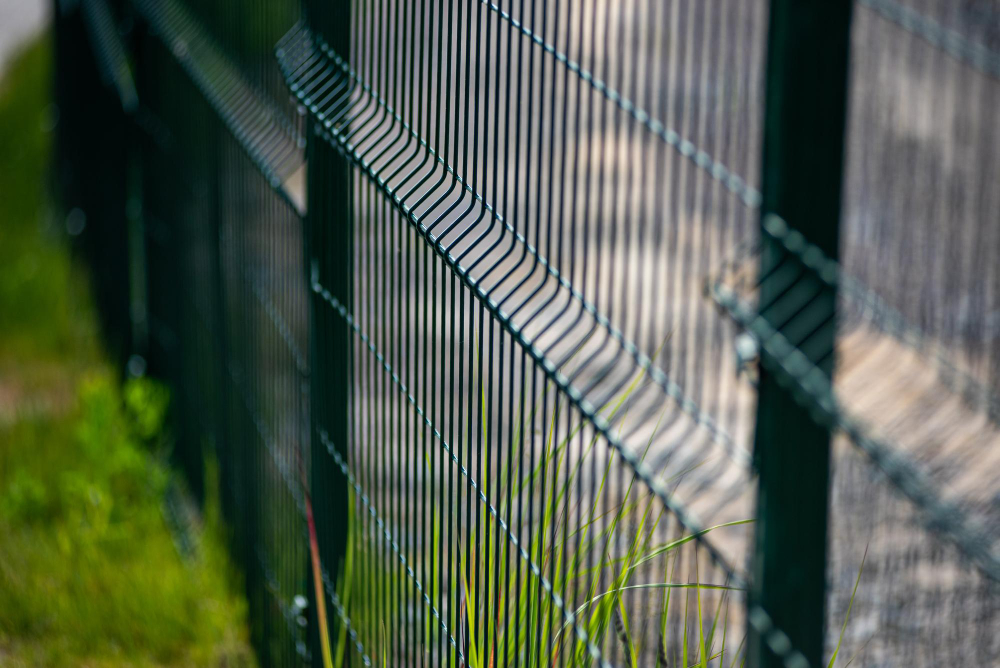Why Commercial Properties Need Professional Fencing Solutions

Commercial property owners face unique security and aesthetic challenges that residential properties simply don't encounter. From protecting valuable assets to maintaining professional appearances, the right fencing solution can make or break a business's success. Yet many property managers and business owners underestimate the complexity involved in selecting and installing commercial-grade fencing systems.
Professional fencing isn't just about putting up barriers—it's about creating strategic perimeters that serve multiple functions simultaneously. Whether you're securing a warehouse, defining property boundaries for an office complex, or enhancing the curb appeal of a retail center, the stakes are considerably higher than typical residential projects.
Security Demands of Commercial Properties
Commercial properties house significantly more valuable assets than residential homes. Inventory, equipment, sensitive data, and high-value machinery require robust protection that amateur fencing installations simply cannot provide.
Professional fencing contractors understand the specific security vulnerabilities that different types of commercial properties face. A manufacturing facility needs different protection than a retail strip mall or corporate office building. Chain link fencing might work perfectly for securing a construction yard, while ornamental iron fencing better suits upscale office complexes.
Beyond basic theft deterrence, commercial fencing must also address liability concerns. Properties open to the public need clear boundaries to prevent unauthorized access to restricted areas. Professional installers know how to integrate fencing with existing security systems, including cameras, lighting, and access control points.
Regulatory Compliance and Zoning Requirements
Commercial fencing projects must navigate a complex web of local regulations, zoning laws, and building codes that residential projects rarely encounter. Height restrictions, setback requirements, and material specifications vary dramatically based on property type, location, and intended use.
Professional fencing contractors stay current with Jacksonville's specific commercial fencing regulations. They understand which permits are required, how to navigate the approval process, and how to ensure installations meet all local compliance standards. This expertise prevents costly delays, fines, and forced modifications after installation.
Many commercial properties also face additional regulatory requirements. Healthcare facilities, educational institutions, and industrial sites often have specialized security standards that must be incorporated into fencing design and installation.
Material Selection and Durability Considerations
Commercial fencing faces significantly more wear and tear than residential installations. Higher traffic volumes, weather exposure, and potential vandalism require materials and construction techniques designed for long-term durability.
Professional contractors understand which materials perform best in Jacksonville's climate conditions. The combination of high humidity, salt air, and intense UV exposure can quickly degrade substandard materials or improper installations. Quality commercial fencing incorporates corrosion-resistant coatings, proper drainage systems, and weather-appropriate hardware.
The upfront investment in professional-grade materials and installation pays dividends through reduced maintenance costs and extended lifespan. Amateur installations often require frequent repairs, partial replacements, or complete overhauls within just a few years.
Aesthetic Impact on Business Success
Commercial fencing directly impacts customer perception and property values. A well-designed fence enhances professional appearance and sends positive signals about business quality and attention to detail. Conversely, poor-quality or deteriorating fencing can drive away potential customers and tenants.
Professional fencing contractors help balance security needs with aesthetic requirements. They understand how to select materials, colors, and designs that complement existing architecture while maintaining necessary functionality. This expertise is particularly important for customer-facing businesses where curb appeal directly impacts revenue.
Different business types require different aesthetic approaches. A law firm needs sophisticated, understated fencing that projects professionalism. A daycare center benefits from colorful, welcoming designs that appeal to families. Industrial facilities prioritize function but still need clean, professional appearances.
Long-term Cost Analysis
While professional commercial fencing requires higher upfront investment than DIY solutions, the long-term financial benefits far outweigh initial costs. Professional installations typically last 15-25 years with minimal maintenance, while amateur installations often require significant repairs or replacement within 5-10 years.
Professional contractors also provide warranty coverage that protects against installation defects and material failures. This coverage provides peace of mind and financial protection that DIY installations cannot match.
Insurance considerations also favor professional installations. Many commercial insurance policies require professional installation for full coverage. Amateur installations may void coverage or result in higher premiums due to increased liability risks.
Integration with Existing Infrastructure
Commercial properties often have complex infrastructure that requires careful coordination during fencing installation. Utility lines, drainage systems, security equipment, and landscaping must all be considered and protected during construction.
Professional contractors have the experience and equipment necessary to work safely around existing infrastructure. They understand how to locate and avoid underground utilities, integrate with existing security systems, and minimize disruption to ongoing business operations.
This expertise is particularly valuable for occupied commercial properties where business continuity is essential. Professional installers can often work around business schedules, complete installations in phases, and maintain security throughout the construction process.
Maintenance and Support Services
Commercial fencing requires ongoing maintenance to preserve appearance, functionality, and security effectiveness. Professional fencing contractors typically offer comprehensive maintenance services that keep fencing systems operating at peak performance.
Regular maintenance includes cleaning, lubrication, hardware inspection, and minor repairs. Professional maintenance programs identify potential issues before they become major problems, extending fence lifespan and preventing security vulnerabilities.
Emergency repair services are also crucial for commercial properties. Gate malfunctions, storm damage, or security breaches require immediate professional response to restore protection and minimize business disruption.
Making the Smart Investment
The decision to invest in professional commercial fencing solutions ultimately comes down to risk management and long-term value creation. Amateur installations may save money upfront but often cost significantly more over time through repairs, replacements, and security failures.
Professional contractors bring expertise, proper equipment, quality materials, and ongoing support that amateur installations simply cannot match. They understand the unique challenges commercial properties face and have the experience necessary to create effective, lasting solutions.
For Jacksonville commercial property owners, partnering with experienced professionals ensures compliance with local regulations, optimal security performance, and aesthetic results that enhance property values and business success.
If you need help with commercial fencing in Jacksonville, FL, contact Masters Quality Fence today for free estimates.